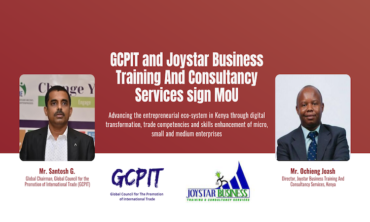MSME Growth
Although no universal definition of “Micro,” “Small,” and “Medium” enterprise has yet been adopted, many entities accept that these businesses contribute to sustainable development by adding to economic growth, offering decent jobs, providing public goods and services, helping to reduce poverty, and lessening inequality.
In both developed and developing countries, MSMEs comprise a large share of all private sector companies. There is a major, immediate role for MSMEs in providing both short-term and long-term benefits to society, including job creation (SDGs). MSMEs (small and medium-sized enterprises) have a direct impact on reducing poverty, increasing household income, and positively impacting on the education and health of families.
Millennium Development Goal MSME development has the capacity to have significant global effects on the SDGs.
SDG 1: No poverty
MSMEs help decrease the number of people who are adults of both genders and all ages who are in poverty by creating and supporting new jobs.
SDG 2: Zero hunger
About 60% of the world’s food producers are small and medium-sized businesses (or micro, small, and medium-sized enterprises).
SDG 4: Quality education
MSMEs are critical to youth and adult employment, as well as providing jobs for adults and opportunities for youth.
SDG 5: Gender equality
Female and female-identifying small- and medium-sized enterprises employ an extreme number of women and girls, and play a significant role in women’s participation in business and trade. MSMEs, or micro-sized-and-medium-sized businesses, are influential in reducing the gender gap among small business owners.
SDG 8: Decent work and economic growth
As key elements of diversification, technological upgrading, and innovation, MSMEs have the potential to support improved levels of economic productivity and wealth in society.
SDG 9: Industry, innovation and infrastructure
Nontraditional, Micro-Small and Medium-sized Enterprises (MSMEs) are drivers of innovation because they fill gaps in the market and offer new products and services.
SDG 10: Reduced inequalities
MSMEs play a significant role in improving the standard of living for the bottom 40% of the world’s population. Small and medium-sized enterprises account for over 90% of all companies across the globe, and empower local communities to escape poverty, which, in turn, reduces socio-economic inequalities.
SDG 12: Responsible consumption and production
MSMEs are more likely to have sustainable business practises than large corporations.
SDG 17: Partnership for the goals
Partnership is absolutely critical in order to accomplish any of the goals. A significant difference between the public and private sectors is that in the public sector the right policies must be in place to help the private sector fulfil its potential as a driver of sustainable change.




















